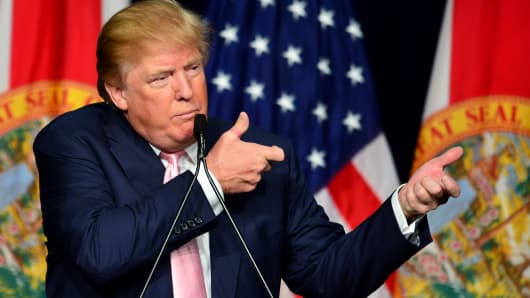In the wake of the Orlando terror shooting, Americans from all political camps are once again asking if anything effective can be done politically to keep guns out of the hands of terrorists and criminals.
Well, hold on to your hats folks, because the first politician arranging a meeting with the National Rifle Association to discuss softening its stance against new gun-buying restrictions is… Donald Trump?!?
Yep, The Donald said as much in a Tweet just this morning:
Trump tweet
Trump has been surprising people for a year now in this campaign, so maybe we shouldn't be surprised by this announcement. But it's hard not to be astonished that Trump seems to be softening on gun control at least somewhat, after virulently promoting Second Amendment rights and attacking gun-control advocates from the time he announced his presidential run. Then again, Trump's real brand throughout this election has been unpredictability and his ability to "make deals." With that in mind, think of the significant publicity Trump would attain if, just as a presidential candidate, he becomes the first person to make the NRA significantly cave and agree to a new gun-buying restriction. Love him or hate him, that would certainly burnish his legend-in-his-own-mind negotiating skills.
Trump's announced meeting with the NRA, even if it ultimately leads to nothing, should serve to remind us of how the true art of negotiation and horse trading has been effectively dead in Washington for decades.
Whether Donald Trump or Hillary Clinton wins the White House, if the next president is serious about achieving gun control, it would be wise to follow the examples of two presidents who knew how to not just get laws passed, but knew how to get things accomplished with broad bi-partisan support that was thought impossible before they beat the supposedly impossible odds. Those two presidents were Lyndon Johnson and Richard Nixon.




